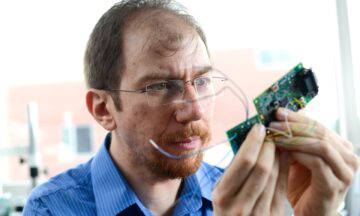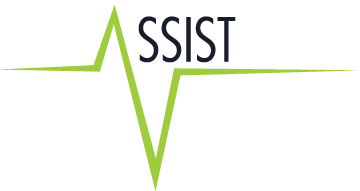
Recent Posts

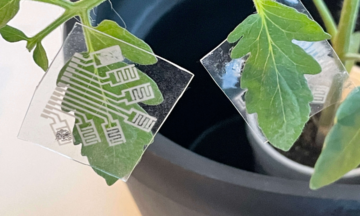
ASSIST and IConS Researchers Part of NSF Convergence Accelerator Grant
It seems almost impossible to imagine replicating the impressive olfactory sensing abilities of animals. Indeed, jewel beetles can detect a burning tree 50 miles away,...
Two ASSIST Faculty Members Named as Highly Cited Researchers by Clarivate
Congratulations to Amay Bandodkar and Michael Dickey for being named among the 2023 list of Highly Cited Researchers by Clarivate. Seven researchers from NC State...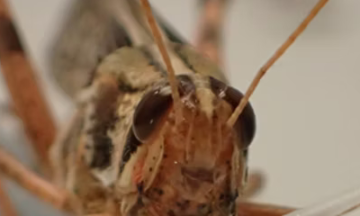
Alper Bozkurt and Team Win $4.3M Grant
A multidisciplinary team led by researchers at the McKelvey School of Engineering at Washington University in St. Louis (WashU) has received a $4.3 million grant from the National Science Foundation’s Integrative Strategies for Understanding Neural and Cognitive Systems (NCS) program. NC State ECE Distinguished Professor and ASSIST Center Co-Director Alper Bozkurt is part of the team, and Baranidharan Raman, professor of biomedical engineering at the McKelvey School of Engineering, is leading the study.
Alper Bozkurt Gains Support from Chancellor’s Innovation Fund for Wearable “EKG” for Dogs
Nowadays, a wristwatch can track your heart rate, measure your blood oxygen level and even give you an electrocardiogram test (commonly abbreviated as “EKG” or “ECG”). And plenty of pet owners probably wish they could afford to track their furry friend’s health in real-time the same way, too. Thanks to David Roberts and Alper Bozkurt, maybe one day they can.
Alper Bozkurt Receives NSF Rules of Life Funding for Mussels Research
The U.S. National Science Foundation has announced funding for Alper Bozkurt’s mussels research under the Using the Rules of Life to Address Societal Challenges program.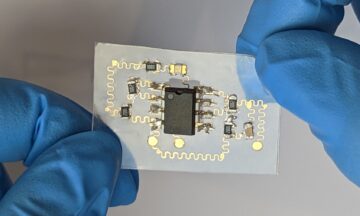
Reflections on Ten Years of ASSIST
Ten years ago, the ASSIST team set out to create disruptive, always-on wearable devices that would enable continuous monitoring for chronic disease management. We achieved this through unique co-engineering of energy harvesting, low-power systems-on-chip, low-power sensing and integration on flexible platforms such as textiles. ASSIST built these systems to meet the requirements of several key chronic health concerns such as asthma, cardiac disease, diabetes, and wound monitoring.
Edgar Lobaton Receives the 2023 William F. Lane Outstanding Teaching Award
Edgar Lobaton, associate professor in the Department of Electrical and Computer Engineering, has received the 2023 William F. Lane Outstanding Teaching Award This article was...